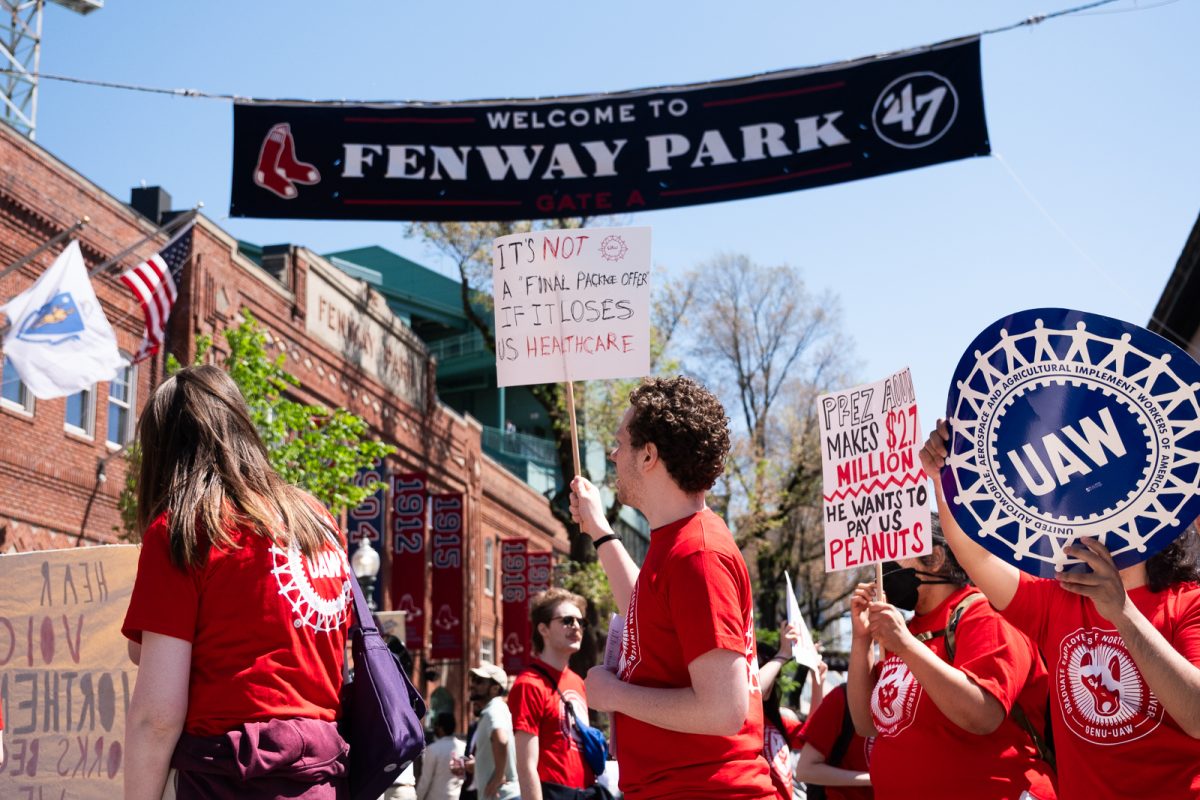As part of an annual program to promote awareness of the Holocaust and other acts of genocide, seven Holocaust survivors came to Northeastern Monday and Tuesday to speak to students about their experiences.
Among the visitors were Rena Finder, one of the survivors on Oskar Schindler’s list, and Sam Natanson, a ghetto and labor camp survivor.
Finder spent three and a half weeks in an Auschwitz concentration camp with her mother before they were saved by Schindler, a German businessman who is credited with saving the lives of nearly 1,300 Jewish people.
She spoke about her experience at the camp.
“When they shaved our hair, we were so totally dehumanized. Every second you think is going to be your last,” Finder said. “There are no words in any language that can describe what Auschwitz was really like.”
After three and a half weeks, Finder and her mother were loaded on a train and brought to Schindler’s factory. There, he put them to work.
“Those of us on Schindler’s list, we had a bed to sleep on, we had food,” she said.
Finder and her mother stayed on with Schindler until the war ended. Her father and his eight brothers, her aunts, cousins and her mother’s entire family were killed in the war.
“I stood in front of my building where I lived before the war, and I was the only child that came back,” she said.
Finder, now 73, was 10 years old when the war began. With each year that passes, fewer and fewer survivors live to tell their tales, and Finder wants to ensure that after all the survivors pass, their memories will live on.
“When we tell our story, those of you who hear it, you become eyewitnesses, so you can tell it again,” she said.
Finder said that while some people still try to claim that the Holocaust never happened, “Because you have met a survivor, you know better.”
Natanson also feels that it is important to share his story.
He was saved by two women who took him and his mother into their homes and hid them from the Nazis until the war ended.
“Who is a real hero? I think that [the people who saved our lives] definitely deserve our respect,” he said.
Natanson spoke of his experience at a concentration camp where 600,000 people eventually died.
“It wasn’t a camp, it wasn’t a facility, it was a murder factory,” he said. “We didn’t know what happened to those that were driven away.”
He said that it is important that future generations understand and know about what happened in Germany during World War II so that the lives of six million Jews will not be forgotten.
“These people, men, women and children, with their aspiration and hopes and talents, were alive,” he said.
Natanson said the records of the lives of these people and their unknown endings is proof of the genocide.
“I wish that they were right, that it didn’t happen, but, unfortunately, it did happen,” he said.
Natanson, who was also 10 years old when the war began, lost the rest of his family during the Holocaust.
He has four children and five grandchildren, including his 40-year old son Saul who attended the event. Saul and his siblings grew up listening to their father’s stories, but said he could never truly understand what he went through.
“I don’t have any cousins, I don’t have any aunts or uncles,” Saul said. “I think I was missing something, but it was a loss that never existed for me.”
Elizabeth J. Wyka, an academic specialist in the school of general studies who helped to organize the event, said that she hopes by doing so, she can help to raise awareness so that no type of genocide ever occurs again.
“[The program] was started as a way to try to involve students in becoming more aware of the Holocaust,” Wyka said.
Wyka is part of the Holocaust Awareness Committee that set up the 13th year of this event.
Finder and Natanson agree that telling their stories is difficult, but that they must speak for the people that were killed by the Nazis.
Finder, who has three daughters and six grandchildren, said that while “not all the victims were Jewish … all the Jews were victims.”








